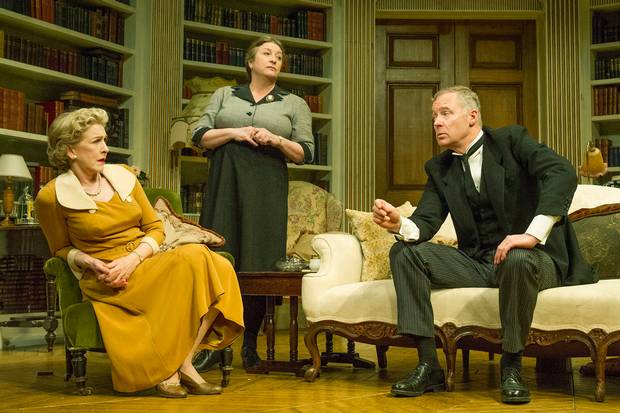Cripes. How did I get that one wrong? A few issues back I blithely predicted that Harry Hill’s musical I Can’t Sing would run for three years. It closes this month, so I’m a little reluctant to praise another glittering comedy, Relative Values by Noël Coward, which, like Hill’s stricken satire, has received a few snubs from the critics.
In his early dramas, Coward portrayed servants as amiable bunglers or bossy cynics and he rarely gave them more than one wisecrack per act. In Hay Fever, for example, the leading lady can’t even recall the housekeeper’s name, and her forgetfulness is supposed to be funny and attractive. Relative Values dates from 1951, when domestic service was in decline and social divisions were being steam-rollered flat. Coward’s response was to write a play in which the servants are fully realised characters who offer their employers shrewd advice and emotional support. It’s a fascinating slice of social history that shows the poshest of the posh grappling with the death of pedigree.
We meet an aristocratic clan whose heir is about to marry an upstart film star, Miranda, who has an elder sister, Moxie, whom she hasn’t seen for years. And Moxie happens to be the personal maid of the family matriarch, Lady Felicity. This device gives Moxie dual nationality: she’s a lowly servant but she’s also about to become kin to a family of earls. The anxieties pile up as the aristocrats, who are all witty and sophisticated sweethearts, caper around trying to deal with the coming earthquake.
The script does take some time to get its engines started. Half an hour is wasted on a plot twist that comes to nothing but finally, in Act III, the trap is set and the fun begins.









Comments
Join the debate for just £1 a month
Be part of the conversation with other Spectator readers by getting your first three months for £3.
UNLOCK ACCESS Just £1 a monthAlready a subscriber? Log in